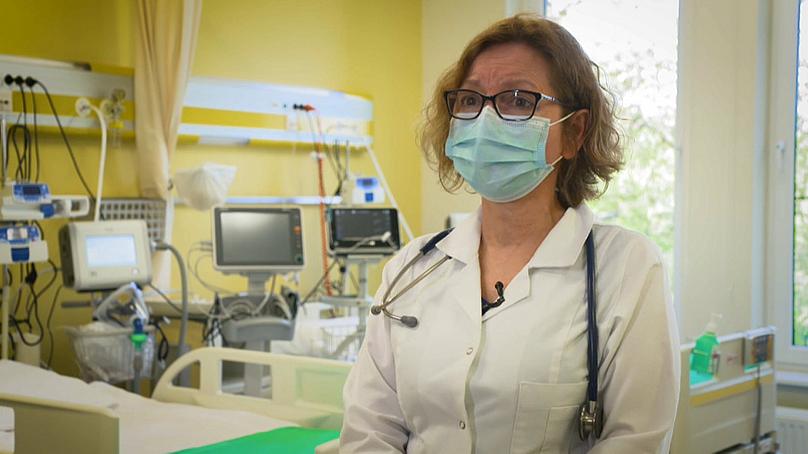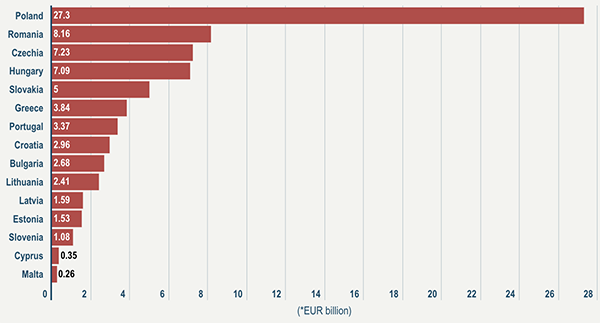In this episode, Real Economy focuses on how the European Union is redeploying its cohesion policy funds to tackle Covid-19.
At 355 billion euros, the EU’s structural and cohesion funds constitute a significant chunk of the bloc’s spending. Cohesion policy aims to reduce disparities in regional income across Europe. Exceptional times, however, call for exceptional measures and in an effort to help member-states cope with the health and economic emergency, 54 billion euros of the fund has recently been redistributed to cope with the crisis.
The money, which has been taken from unused reserves or distributed earlier than planned, will go towards healthcare spending, like masks or hospital equipment, short-term employment schemes, and to companies, so they can pay staff.

Poland’s PPE shortage
In Poland, the coronavirus has hit the country’s healthcare system hard. One out of six confirmed cases are thought to be healthcare professionals. Malgorzata works as a pulmonologist in Kuyavian-Pomeranian province. At the start of the crisis she says there was a serious lack of proper protective equipment, but thanks to an initiative supported by the European Social Fund, she says hospitals one are now getting the vital material they need.
“Being able to buy this equipment has brought us, let’s say, some comfort,” Malgorzata says, adding: “It’s state of the art, enabling us to monitor patients at their bedside, but more importantly, they are also connected to a control panel, which is far from the patient’s bed, so safe for the hospital staff. This European funding is vital, like many countries Poland wasn’t ready for such a pandemic.”

Izabela has worked in the paediatric department of Torun Hospital for 25 years. When the epidemic hit, she volunteered with her friend Elzbieta to help staff treating patients with Covid-19
“We wear these protective suits, and keep them all the time when on the ward. We assume the whole ward could be infected. When we are close to patients that have tested positive for coronavirus, we use additional protection, such as aprons, visors, HEPA masks, gloves.”
Around 10 million euros from the European Social Fund has been reallocated to buy cleaning and protective equipment, as well as ventilators and heart monitors. The project is also supporting two temporary respite centres, like this hotel, where the two nurses can stay after a long night shift.
“This centre is important because you can really relax after being on shift. I don’t have any household duties here…meals here are prepared for us. We know that this is temporary,” says Elżbieta.



